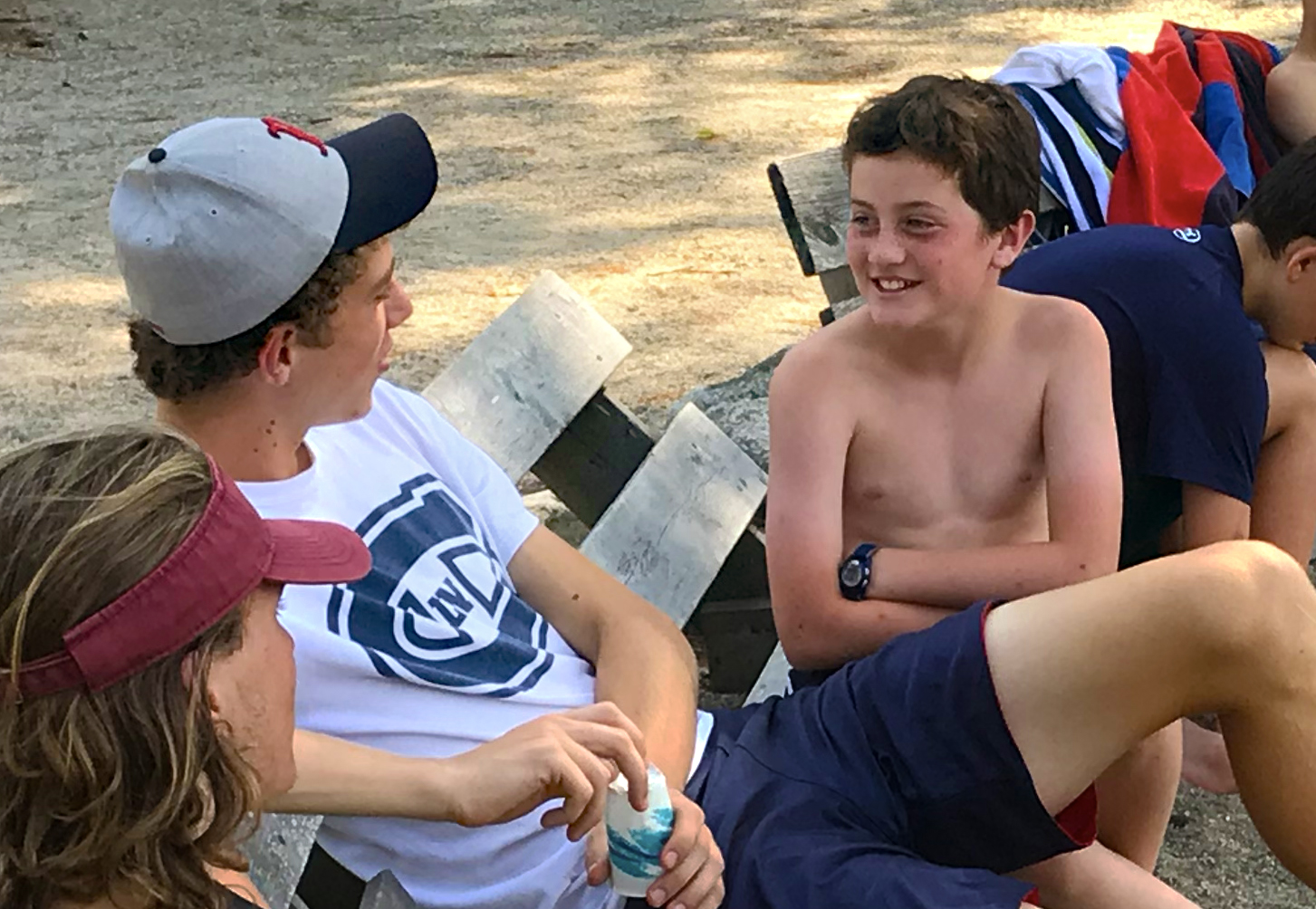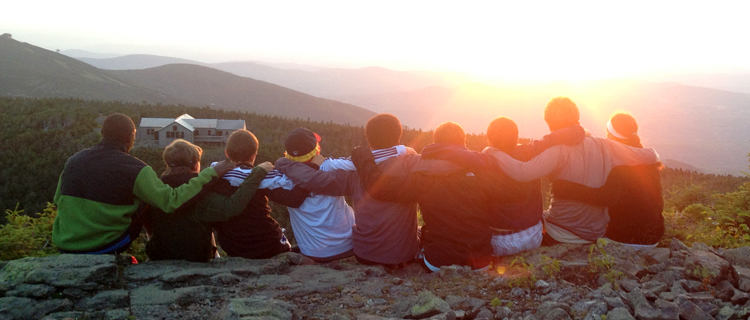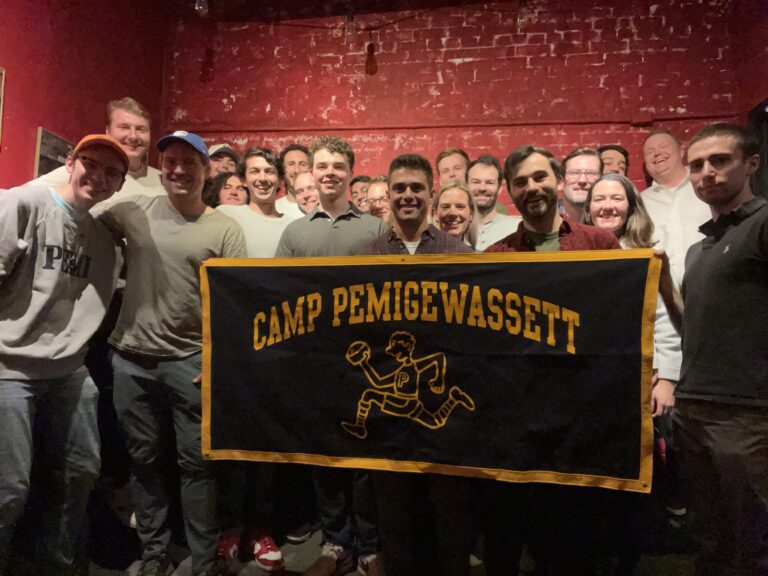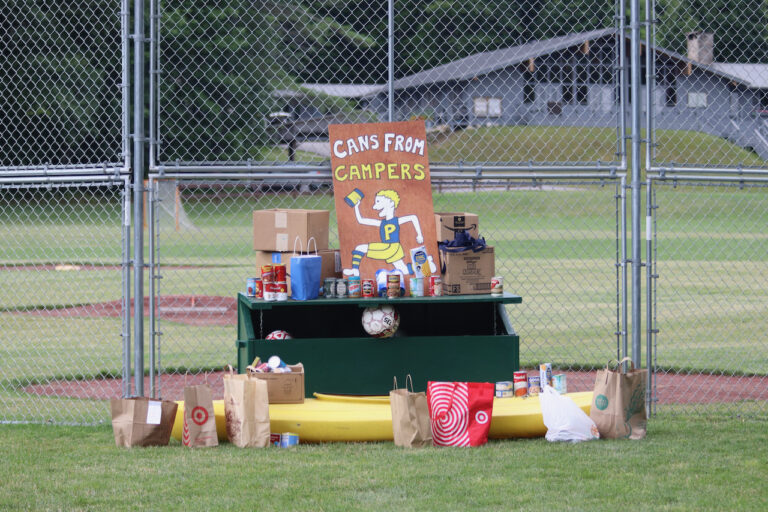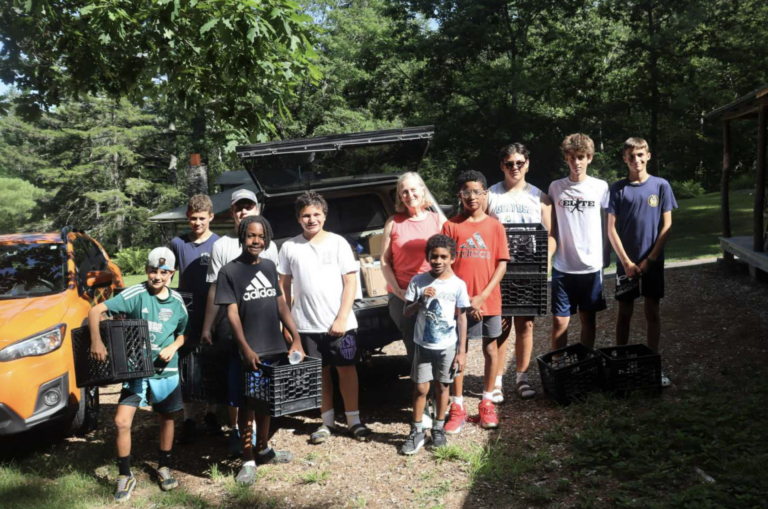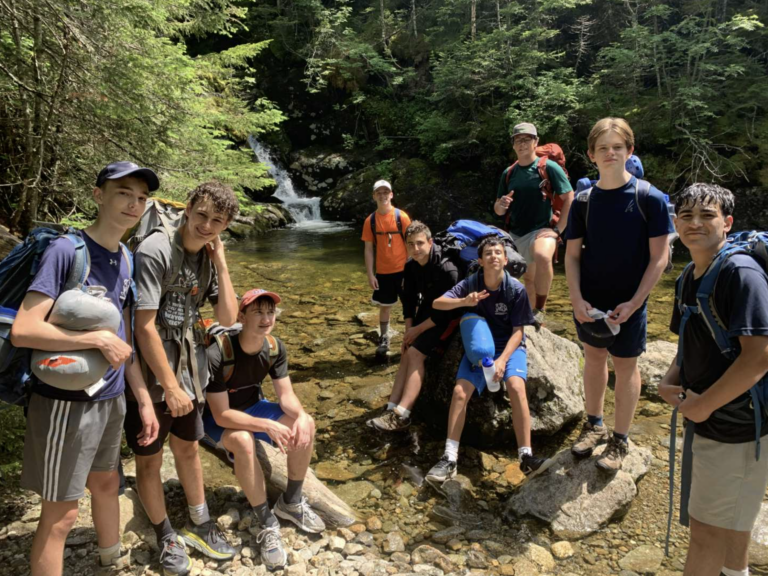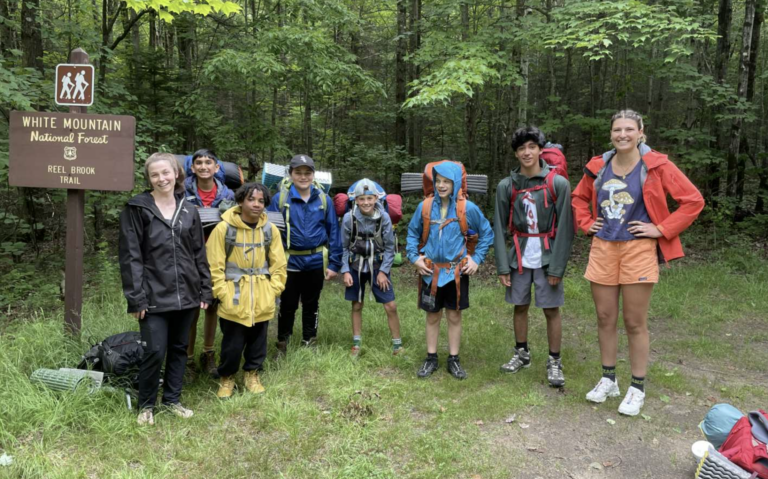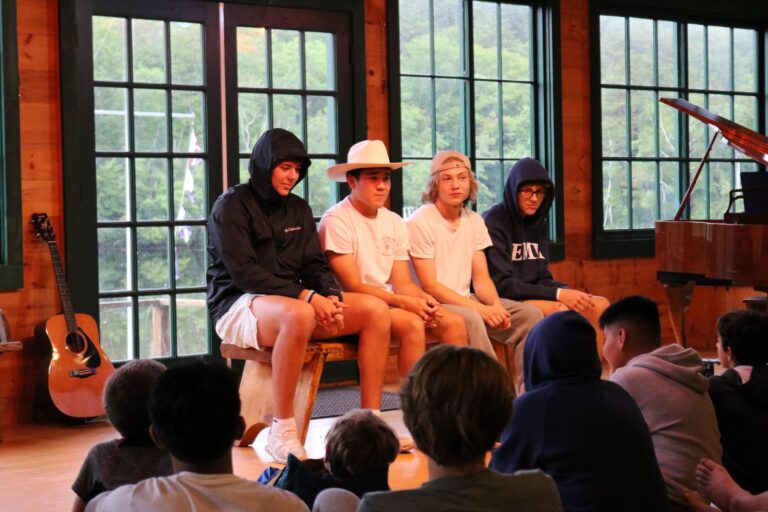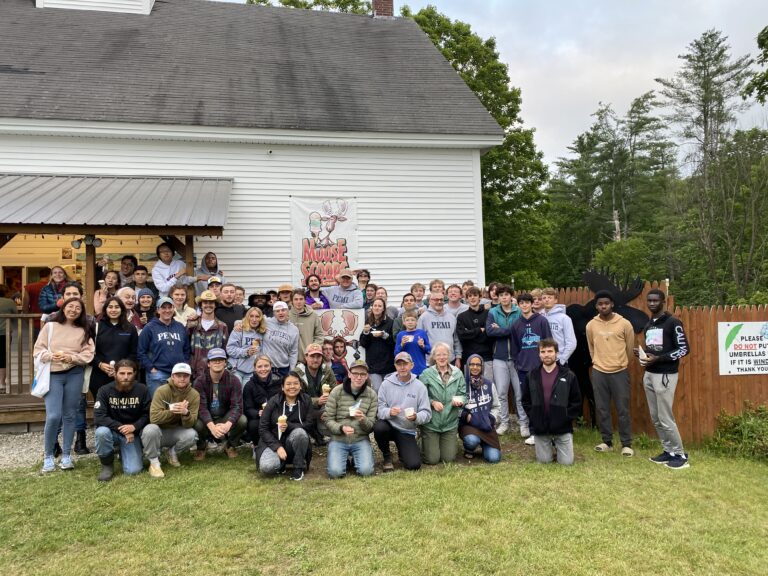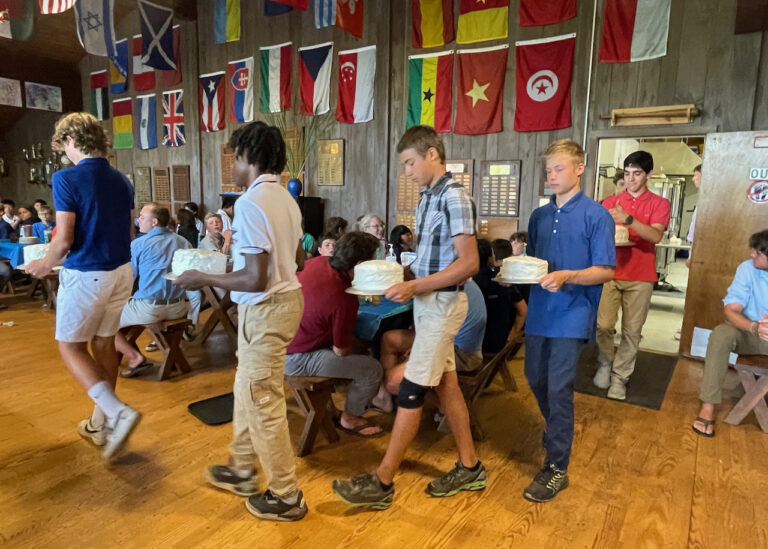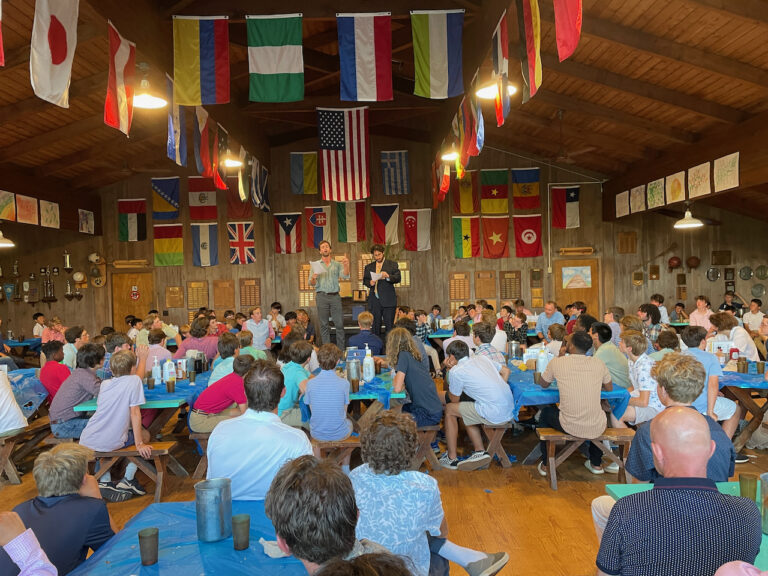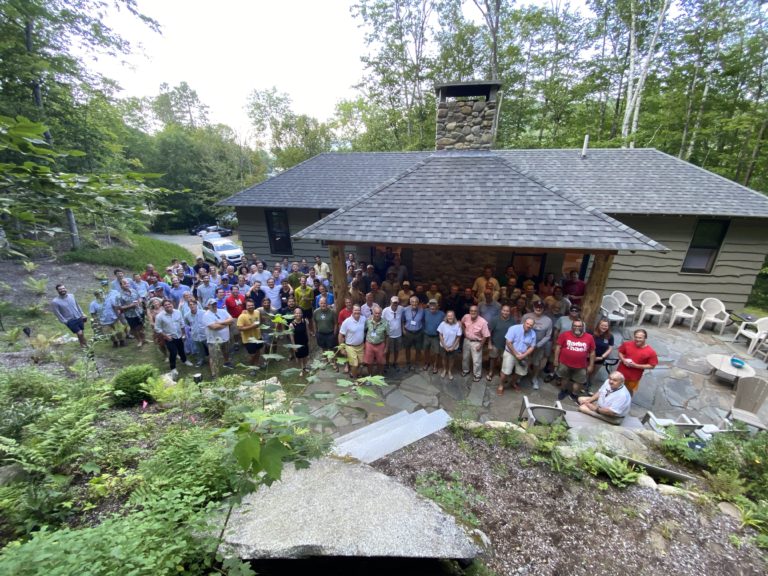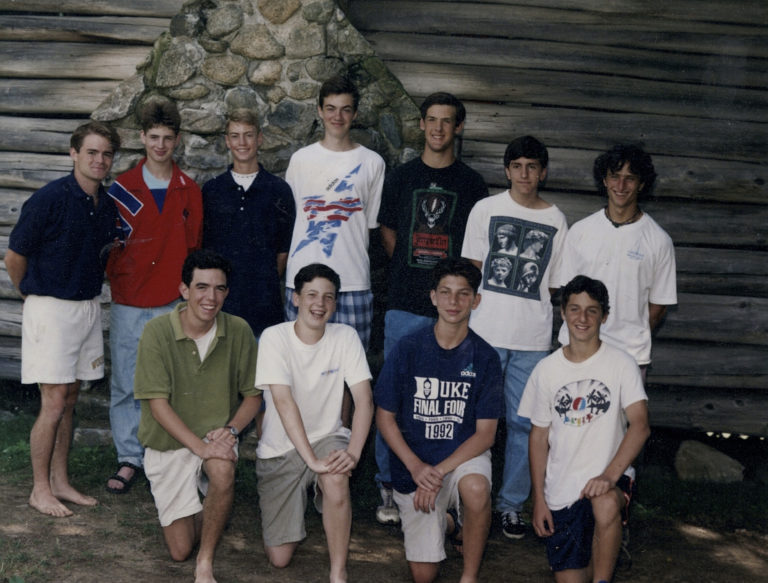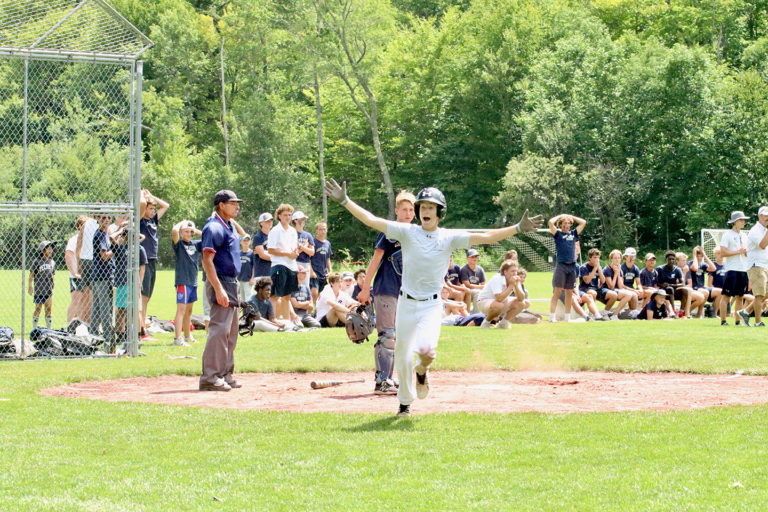- Pemi literature
The True Legend of the One-Armed Brakeperson
From the Pemi archives comes this wonderful poem by Tom Reed, Jr., originally written in the 1970s but shared more recently at campfire. The subtitle is A Sentimental, Moral, Melodramatic Tragi-Comedy in Tetrameter Couplets. We hope you enjoy this poem, which begins with the conventions of the ghost-story genre– and ends with an unexpected twist.
In former years, a woman’s fate
Was sadly in the home to wait
While menfolk ventured forth each day
To earn their daily bread some way.
But now and then a female few,
In search of something bold to do,
Abandoned dresses, skirts, and shawls
To seek a job – in overalls.
In New York town, in 1910,
One woman thus hood-winked the men
And won a job for all her pains,
One working New York Central trains.
She tucked her hair up in a hat
And bound her chest down extra flat,
Said “Dang” instead of “goodness sakes,”
And joined the crew that manned the brakes.
It went just fine for several years:
She’d join the boys for days-end beers,
Then hurry home to spend her nights
Engaging in a woman’s rites.
She’d let her hair down, brush her curls,
Adorn her throat with broach and pearls,
And now and then bewail the strife
Occasioned by her double life.
She had respect, and weekly pay,
Secure employment day to day –
But what a price to pay for these –
To curb all femininities!
By middle June, in 1912,
She’s almost vowed her job to shelve
And find a line of work, perchance,
That called for persons, not just pants.
But times were changing far too slow
To give our friend an option, so
She soon resolved one Saturday
To force the issue, come what may.
To soothe her soul, it was her plan
To start one work day as a man
But change her clothes to skirt and blouse
Before the train left stationhouse.
She’d do her job just as before,
But play the man she would no more.
“It’s as I am I’ll work,” she said –
But hearken what befell instead.
The train was packed that fateful day
With campers bound for far away,
In flight from Gotham’s filthy air
In search of sylvan settings fair.
Among the throngs that boarded then,
A group of stalwart Pemi men
And neophytes, yet to be boys;
The coaches rang with joyous noise.
The whistle blew. They took their seats,
Descending on the fruits and sweets
Their mothers had, with loving care,
Provided for their travelling fare.
Some told of summers spent before
Along the Lower Baker shore,
While others boasted, proud and flushed,
How old Tecumseh’s teams they’d crushed.
They passed through Greenwich, Stamford too,
Then north towards Hartford fairly flew.
The day was clear; the rails were fast;
New England’s landscape hurtled past.
The engine belched out smoke and steam;
‘Twas bliss to hear the whistle scream.
Said engineer to fireman, “Son,
It’s apt to be a record run.”
Then suddenly, above the din
Of racing engine, whistling wind,
There came a sound he knew too well –
The dread alarm, the brakeman’s bell.
With brakes engaged, he throttled back.
The engine’s wheels locked on the track;
With thund’rous crash and deaf’ning squeal,
There rose the reek of scorching steel.
Inside the coaches, standees stumbled.
Ladies screamed as luggage tumbled.
All surged forward with a rush,
Then all was still – a deathly hush.
The engine whispered, idling there;
The smoke rose straight in still June air.
The train crew, shaking off a daze,
Back through the coaches made their ways
To find the one who’d stopped the train
By yanking on the braking chain.
Between two cars they found a lass –
Her eyes were fixed, and glazed as glass.
She knelt upon the platform there.
Tears coursed her cheeks, bedewed her hair.
“He almost fell,” she murmured then,
Her voice most strange – so thought the men.
“He wandered out. I saw him go.
I didn’t know his purpose, though.”
Again, that voice – familiar sound:
The men gazed quizzically around.
A little boy was standing there,
A Pemi cap on tousled hair.
“I almost fell. I came so near.
She saved me. Her. This lady here.”
The woman stood. They eyed her face.
A sudden silence seized the place
‘Til, to a man, they recognized
The wench who’d worked with them, disguised.
“What’s this?” asked one, the engineer.
“I smell a rat. It’s Joey here!”
“Not Joe,” cried one, “Perhaps Joanne,
A tom-boy dressed up like a man.”
Some laughed aloud, some quipped and joked,
But others felt their anger stoked
And scorned the woman who could deign
To hide her sex to work the train.
“You had no right,” they yelled with rage.
“You should know better, at your age:
A woman’s place is in the home.
This world’s for men to rule and roam.”
‘Midst slurs and insults such as these
She crumpled once more to her knees.
They turned to leave – but then the lad
Cried, “Please, sirs, look. I think it’s bad!”
The woman knelt, just as before –
But there, advancing, ‘cross the floor,
A crimson fan, a scarlet flood –
“Oh God,” said one – “I think it’s blood!”
“It’s not just there, look over here,”
Sighed the conductor, drawing near.
“That bumper’s covered with the stuff!
Oh no, please God, I’ve seen enough!”
The others turned, then staggered back,
For there, stretched out upon the track,
Half wound in fabric, drenched in gore,
A human arm – attached no more.
A hammer blow, straight to the brain,
Could not have dealt these men more pain.
Their words of cruelty echoed loud
For e’en the harshest of the crowd.
In silence there they stood as dead,
‘Til bowed by grief, the fireman said,
“We’re sorry ma’am. We didn’t know
The crashing cars had hurt you so.
We didn’t mean those things we spoke.
Forgive us please. Our hearts are broke.”
“Forgive?” she sighed, with distant air
While staring at each train man there.
“I think I’ve heard too much today
To give forgiveness any play.”
With that, she lost all consciousness.
They cared for her, I must confess.
They put her in a doctor’s care
And paid for all expenses there.
Once she was well, and passing strong,
They asked if she would come along
And join them daily, once again,
As brakeman on the New York Train.
With cool politeness, she declined.
She said, “I’ve got a yen to find
A place where I can change the ways
That men treat women all their days.”
Her task was hard, her search was long,
As any quest to right a wrong,
But now and then her thoughts returned
To the Pemi lad whose loved she’d earned.
To make an epic story short,
She soon resolved her best resort
Was haunting woods on Pemi Hill –
No, not to torture, maim, or kill
But just to do the things she could
To banish wrong and foster good.
So Pemi men, and Pemi boys,
When next you hear an eerie noise,
Examine well your heart and mind
And tell us, truly, what you find:
If you think women equal, peers,
Compose yourself, allay your fears;
The one-armed brakeperson is here
To bring you comfort, joy, and cheer.
But if your way’s to take a poke
At womankind, in tale or joke,
Prepare yourselves – for one night soon,
You may be moved to change your tune.
For though she’s loathe to slash and bind,
The one-armed brakeperson’s inclined
To sit you down and lecture you
Until you for forgiveness sue.
In midnight woods, ‘midst bugs galore,
She’ll let you know what lies in store
For domineering males and those
Who make of half our race their foes.
So there you have it, straight and true –
What one-armed brakepeople will do:
They seldom terrorize the place.
Their task? To heal the human race.
–TRJR (possessed by the spirit of someone)
© 2011



